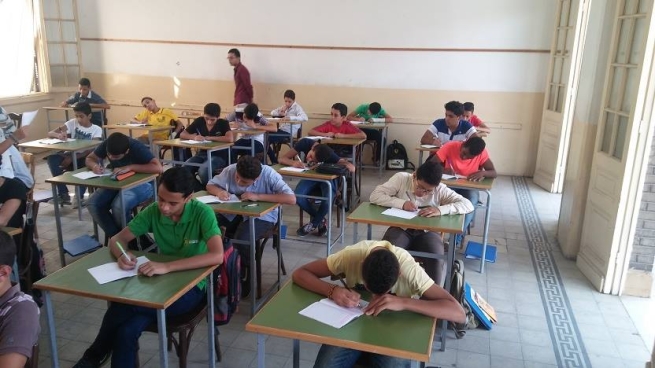Now, as the centenary of the Salesian mission in Cairo (2026) approaches, the initiative is expanding with a new vision: to become the first ITS Academy outside of Italy. Currently, many Egyptian students continue their education in Italy—last year, 60 students enrolled and successfully passed the admission tests for the Italian ITS Academy. With this initiative, they will be able to complete their two-year post-diploma program in Egypt instead. Additionally, the Egyptian ITS Academy could be structured as a network by connecting multiple ITS Academies interested in participating.
"Don Bosco's mission has always been to educate citizens and believers, especially the most in need," said Fr. Morcos Helmy, the Institute's Director. "In 2026, we will celebrate 100 years of our presence in Egypt’s capital. We are the only foreign school included in the 4+2 experiment: we offer diplomas in electrical engineering, mechatronics, and computer science, which are also recognized in Italy. We have about 70 teachers and a thousand students, and every year we train 140 highly skilled technicians fluent in Italian."
This spirit of cooperation, education, integration, and internationalization led to the launch of "Villaggio Italia" (Italy Village) on Wednesday, February 12, marking the first operational step after the signing of the Italy-Egypt Memorandum of Understanding under the so-called "Mattei Plan". This strategic initiative focuses on diplomacy, development cooperation, and investments in Africa, promoted by the Italian government in collaboration with businesses and non-profit organizations.
It is no coincidence that "Villaggio Italia" in Cairo has chosen to rely on the Salesian "Don Bosco" Institute. "This village represents the first Italian educational fair abroad. We have brought together 48 ITS Academies and 50 companies. With the 4+2 reform, we are strengthening the connection between educational institutions and businesses," explained Giuseppe Valditara, the Italian Minister of Education and Merit, during the inauguration of Villaggio Italia, held in the large courtyard of the Salesian-run institute.
Amidst the white pavilions, decorated with the red and green colors of the Italian and Egyptian flags, a two-day event began, aiming to identify students for placements in Italy or within the 300 Italian companies operating in Egypt.
Investment and Future Prospects
According to projections, "Villaggio Italia" will require a budget of €140,000 for laboratories and €300,000 for 2,000-hour training courses. However, the investment is expected to be highly beneficial, considering the ongoing shortage of skilled labor, which affects both Italian and local businesses.
"Human capital must always be at the center of our attention. This village aligns with the needs of people and businesses. (…) Education is the foundation of inclusion," commented Emanuele Orsini, President of the General Confederation of Italian Industry (Confindustria), one of the project’s partners. Confindustria is also working on mapping skills and industry demands.
Similarly, Confindustria Alto Adriatico, in collaboration with Umana SpA (a manpower agency), the Friuli-Venezia Giulia region, and the Salesian NGO "Volontariato Internazionale per lo Sviluppo" (VIS – International Volunteers for Development), has already tested a similar partnership in Ghana. Their project aims to train young professionals at the Don Bosco Vocational Training Center in Ashaiman, Ghana, and integrate them into into northeastern Italy’s industries.


